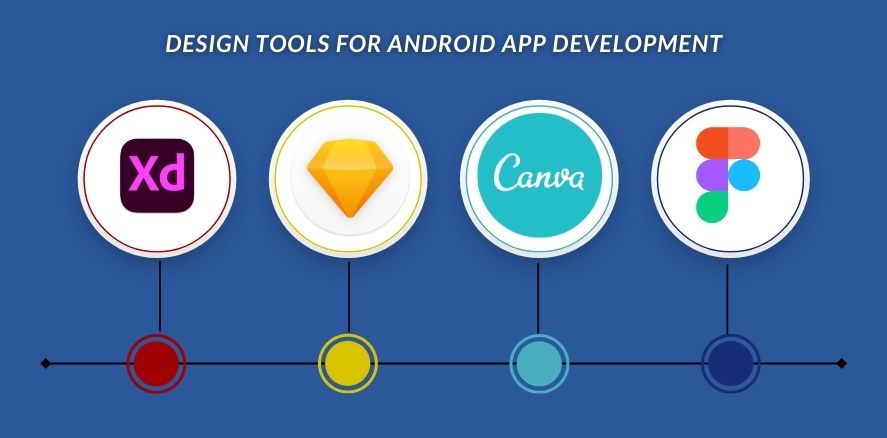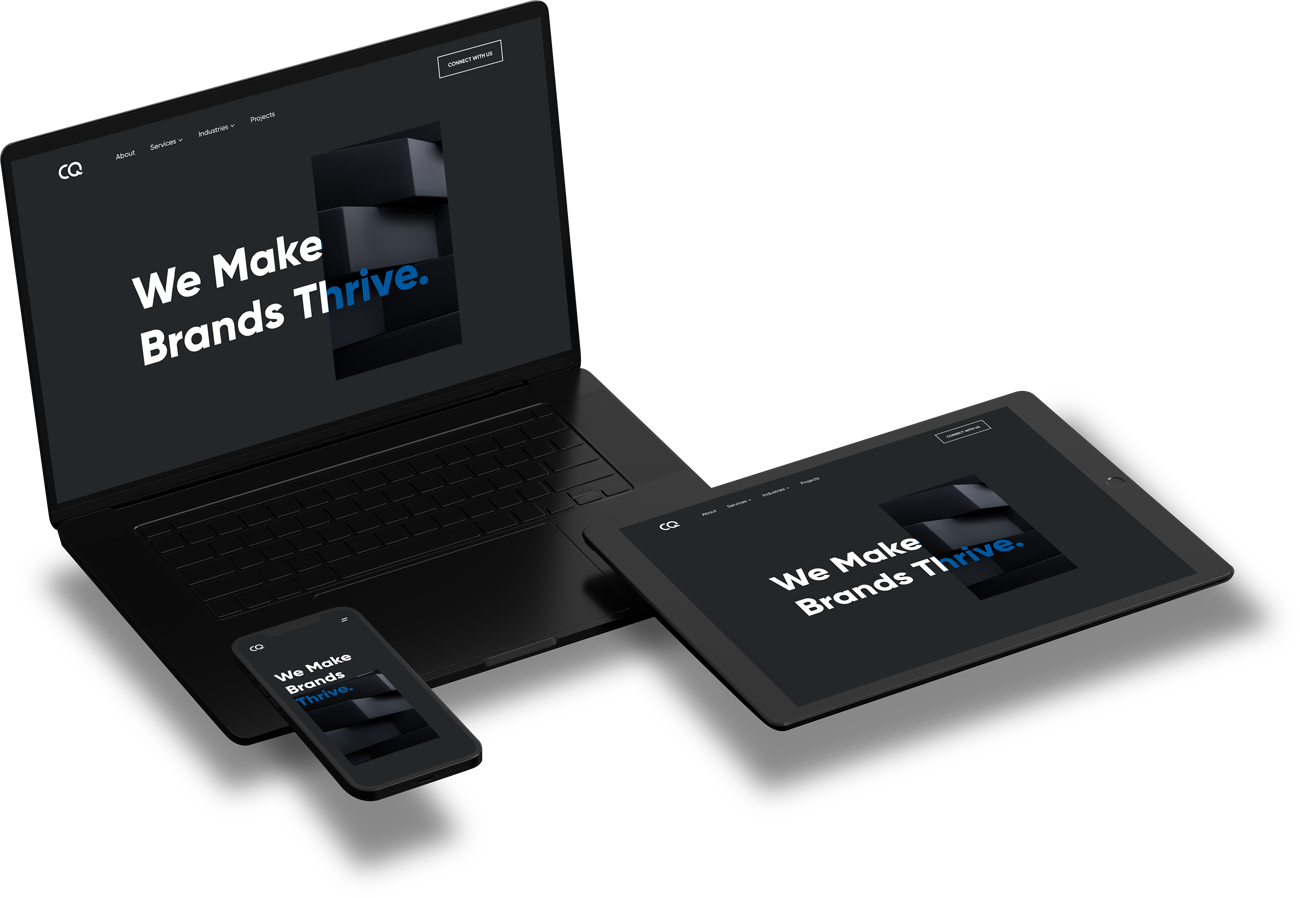 May 15, 2023
May 15, 2023

Are you thinking of building an Android app but don’t know where to start? Android app development can seem daunting, especially if you’re new to the world of mobile app development. But with the right set of tools, you can turn your app idea into reality. In this ultimate guide, we’ll take you through various Android app development tools that you may need to build a successful Android app, including design, development, testing, IDE, and frameworks.
Before moving on to the Android app development tools, let us first go through some fascinating facts and figures surrounding the mobile app development world.
Do you know? Users spend 90% of their time spent on mobile using apps and only 10% on the browser.
Here are some of the latest stats surrounding Android App Development Trends according to Harvard Business Review & Statista:
Designing an Android app requires a good eye for aesthetics and a solid understanding of the user experience. Fortunately, plenty of design tools are available to help you create beautiful, intuitive apps. Some of the most popular design tools for Android app development include:

A UX design tool that enables the design, development, prototyping, and sharing of mobile websites and apps.
A vector-based design tool that is great for designing UI/UX for Android apps. Sketch comes with an extensive library of plugins and integrations that make it easy to work with other tools.
A collaborative design tool that allows you to design, prototype, and collaborate with other designers and developers in real time.
A simple, easy-to-use graphic design tool that can help you create graphics, icons, and other visual elements for your Android app.
There are several popular tools and frameworks available for Android app development. Here are some of the most commonly used ones:
Once you’ve designed your app, it’s time to start developing it. Android app development requires a good understanding of programming languages like Java and Kotlin and the Android SDK. Here are some of the most popular development tools for Android app development:
The official IDE for developing Android apps. A variety of features and tools included with Android Studio make it simple to create, test, and debug Android apps.
A multi-language open-source IDE (integrated development environment) that supports Java and Kotlin. Because of its simplicity and adaptability, Eclipse is a preferred option among Android app developers.
IntelliJ IDEA is also similar to Eclipse, an open-source IDE supporting multiple programming languages, including Java and Kotlin. Its wide array of features and tools makes it an ideal fit for Android app developers.
A popular IDE that supports multiple programming languages, including C++, C#, and Java. Visual Studio comes with a range of features and tools which makes building, testing, and debugging Android apps much simpler.
Testing is an essential part of Android app development. It ensures that your app functions as intended and provides a good user experience. Here are some of the most popular testing tools for Android app development:
A testing framework that allows you to write automated UI tests for Android apps. Espresso is easy to use and integrates well with Android Studio.
A testing framework that allows you to write unit tests for your Android app. JUnit is easy to use and integrates well with Android Studio.
A testing framework that allows you to run your Android app’s code on your local machine without needing an emulator or a device. Robolectric is excellent for testing complex logic and business rules.
A cloud-based testing service that allows you to test your Android app on various real devices. Firebase Test Lab provides detailed reports and insights that can help you improve the quality of your app.
Frameworks provide a foundation for building Android apps. They offer a range of features and tools that make it easier to build high-quality apps. Let’s look at some of the most popular frameworks for developing Android apps:
A popular framework that allows you to build native Android apps using JavaScript and React. React Native is great for building cross-platform apps and provides a range of performance optimizations.
A well-known framework that allows you to build high-performance Android apps using the Dart programming language. Various widgets and features included with Flutter make developing attractive and responsive apps simple.
Ionic is another well-known framework that enables the creation of cross-platform apps utilizing web technologies like HTML, CSS, and JavaScript. It is easy to learn and can be used to build several apps, from simple to complex.
Apart from the tools mentioned above, there are a few other tools as well that can make your Android app development journey easier. Here are a few of the most well-known tools:
A code hosting platform that allows you to store, share, and collaborate on code with other developers. GitHub manages code, tracks issues, and reviews code changes.
A build automation tool that is used to build, test, and deploy Android apps. Gradle is easy to use and can be customized to suit your specific needs.
An Android emulator that makes it simpler to test and debug Android apps by offering a variety of capabilities. Genymotion is fast, reliable, and easy to use.
Here is a tabular comparison between various Android app development tools, including design tools, development tools, testing tools, frameworks, and other useful tools.
| Category | Tool | Description | KPIs |
|---|---|---|---|
| Design Tools | Sketch | Vector graphics editor for UI/UX design | User satisfaction |
| Intuitive interface | Design iteration time | ||
| Extensive plugin ecosystem | |||
| Adobe XD | Design and prototyping tool | Prototyping speed | |
| Interactive app prototypes | Team collaboration | ||
| Collaboration features | |||
| Figma | Collaborative design tool | Collaboration efficiency | |
| Real-time collaboration | Design version control | ||
| Cloud-based storage | |||
| Development Tools | Android Studio | Official Android IDE | Build time |
| Comprehensive development tools | Code quality | ||
| Android emulator | |||
| Visual Studio Code | Lightweight code editor | Developer productivity | |
| Wide language support | Code navigation | ||
| Extensions for Android development | |||
| IntelliJ IDEA | Powerful IDE for Android development | Code refactoring time | |
| Advanced code analysis | Error detection | ||
| Refactoring tools | |||
| Frameworks | React Native | Cross-platform framework with JavaScript and React | Development time |
| Hot-reloading | Code sharing | ||
| Native-like performance | |||
| Flutter | UI toolkit for cross-platform app development | UI rendering performance | |
| Single codebase | App size | ||
| Fast app rendering | |||
| Xamarin | Framework for building Android apps with C# | Code reusability | |
| Code sharing with other platforms | Performance | ||
| Integration with Visual Studio | |||
| Other Tools | Git | Distributed version control system | Code version control |
| Collaboration and code versioning | Collaboration | ||
| Branching and merging | |||
| Gradle | Build a system for Android apps | Build time | |
| Automates build, testing, and deployment | Build optimization | ||
| Dependency management | |||
| Postman | API testing tool | Test coverage | |
| Request sending and response analysis | Test automation | ||
| Automation of API testing |
This table provides an overview of various tools commonly used in Android app development, categorized into design tools, development tools, testing tools, frameworks, and other useful tools. Depending on your specific requirements and preferences, you can choose the most suitable tools to build your Android app.
The added KPIs provide an indication of the performance and effectiveness of each tool. In addition, these KPIs can help you evaluate and compare the tools based on specific metrics important to your Android app development project.
Android app development requires a range of tools, from design and development to testing and frameworks. These tools, when used right, can help you build high-quality apps that provide a great user experience.
In this ultimate guide, we’ve covered some of the most popular tools for Android app development, including design tools like Adobe XD and Sketch, development tools like Android Studio and Eclipse, testing tools like Espresso and JUnit, frameworks like React Native and Flutter, and other tools like GitHub and Gradle. These tools can help you enhance your Android app development skills, regardless of your degree of expertise as a developer.
We at CraftedQ believe that an idea is just a thought until it is crafted. A one-stop shop for all your digital needs, our team of 200+ experts in full-stack development, DevOps, cloud architecture, product development, digital consulting, UI/UX design, and project management can help your business create a comprehensive digital presence backed by cutting-edge technologies.
